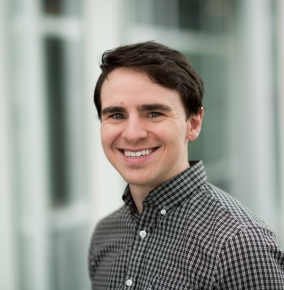Ryan Soklaski

Ryan is excited about teaching computers and people, breaking down complex concepts into manageable chunks of information. At the Laboratory, he investigates machine learning to give a computer the reasoning skills of a human brain. A recent project was to enable a computer to generate an answer to a question posed in natural spoken language, for example, "In this picture, how many cars are parked next to the building?" Through iterative trial-and-error experiments, he and his team trained the system to apply several types of algorithms — human language processing, visual recognition, spatial reasoning, and information synthesis — to deduce the correct answer.
Ryan says he's been teaching in some fashion since his days tutoring classmates in high school or semesters working as a university teaching assistant. In 2017, he tapped into his enthusiasm for machine learning to create CogWorks, a project-based class at the Beaver Works Summer Institute, an engineering program run by Lincoln Laboratory and MIT for high school seniors. During the four weeks of the class, 27 students customized Amazon's Alexa platform to make their own cognitive assistants. Because learning the Python programming language used for CogWorks took so much in-class time, Ryan is spending some of his free time building an online tutorial for the next crop of his summer students and anyone else who wants to Python Like You Mean It.